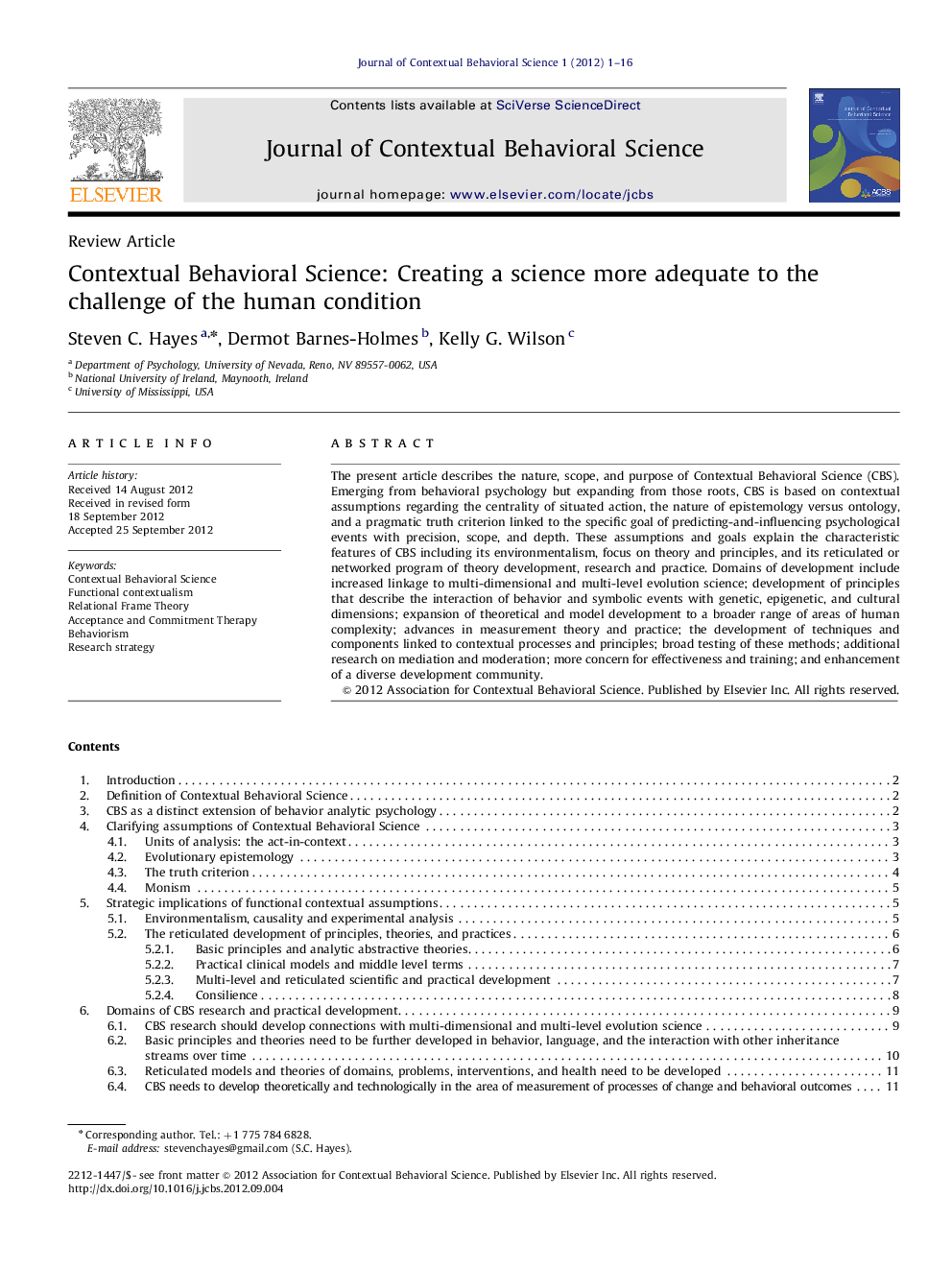| Article ID | Journal | Published Year | Pages | File Type |
|---|---|---|---|---|
| 911231 | Journal of Contextual Behavioral Science | 2012 | 16 Pages |
The present article describes the nature, scope, and purpose of Contextual Behavioral Science (CBS). Emerging from behavioral psychology but expanding from those roots, CBS is based on contextual assumptions regarding the centrality of situated action, the nature of epistemology versus ontology, and a pragmatic truth criterion linked to the specific goal of predicting-and-influencing psychological events with precision, scope, and depth. These assumptions and goals explain the characteristic features of CBS including its environmentalism, focus on theory and principles, and its reticulated or networked program of theory development, research and practice. Domains of development include increased linkage to multi-dimensional and multi-level evolution science; development of principles that describe the interaction of behavior and symbolic events with genetic, epigenetic, and cultural dimensions; expansion of theoretical and model development to a broader range of areas of human complexity; advances in measurement theory and practice; the development of techniques and components linked to contextual processes and principles; broad testing of these methods; additional research on mediation and moderation; more concern for effectiveness and training; and enhancement of a diverse development community.
► CBS is a broad program of research and practical development. ► CBS is best viewed as part of multi-dimensional and multi-level evolution science. ► It emerged from behavioral psychology, but stands on its own. ► Its assumptions explain its environmentalism, focus, and reticulated approach. ► CBS has scores of important practical and empirical areas for exploration.
